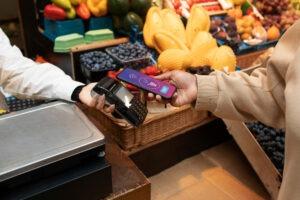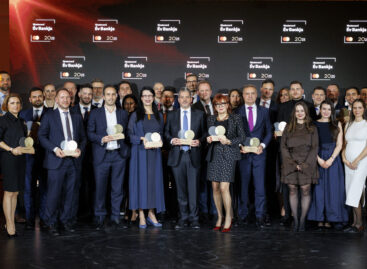German shoppers open to biometric payments
According to a recent Mastercard survey 43% of German consumers are open to paying with biometric identification at in-store checkouts, an increase of 9% compared to the previous year.

Currently one in three Germans (35%) use biometric identification for payment most often with fingerprints (70%), but facial recognition (44%), voice recognition (10%) and iris recognition (8%) are also popular.
The technology could mainly appear in unmanned, automated shops where for example facial recognition makes the shopping process is almost imperceptible. Such solutions are particularly popular among 18-39 year olds, 57% of whom would like to try them. The first pilots are already underway, where customers identify themselves by, for example, iris scanning.
Mastercard stresses that biometric payment systems are not only more convenient but also more secure.
Mobile payments are also gaining momentum: last year, 36% of Germans used a smartphone or smartwatch at least once to make a payment. This method of payment is particularly popular among young people, with 64% paying regularly by phone or a wearable.
Digital payment solutions are gaining general acceptance and contactless payments are now standard, used regularly by 69% of respondents, most often with a debit card, but increasingly also with smartphones and smartwatches. According to the research, 40% of respondents have decided to leave a shop without making a purchase or not to go in at all because they could have only used cash to pay.
Lebensmittelpraxis
Related news
OTP Bank won the grand prize of the 20th Mastercard – Bank of the Year competition
🎧 Hallgasd a cikket: Lejátszás Szünet Folytatás Leállítás Nyelv: Auto…
Read more >Brits Embrace At‑Home Celebrations While Germans Cut Back on Valentine’s Day Spending
🎧 Hallgasd a cikket: Lejátszás Szünet Folytatás Leállítás Nyelv: Auto…
Read more >German consumers want greater control
🎧 Hallgasd a cikket: Lejátszás Szünet Folytatás Leállítás Nyelv: Auto…
Read more >Related news
How to spend Valentine’s Day around here
🎧 Hallgasd a cikket: Lejátszás Szünet Folytatás Leállítás Nyelv: Auto…
Read more >OKSZ on the extension of the margin stop decree
🎧 Hallgasd a cikket: Lejátszás Szünet Folytatás Leállítás Nyelv: Auto…
Read more >PwC Consumer Loyalty Survey now available for pre-order
🎧 Hallgasd a cikket: Lejátszás Szünet Folytatás Leállítás Nyelv: Auto…
Read more >









